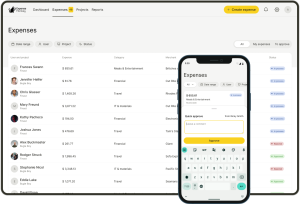When buying or refinancing a vehicle, taking out a loan is an important financial decision. Gaining knowledge about how loans function will enable you to make an informed decision.
Lenders often provide different auto loan terms and interest rates, so comparison shopping is essential when looking for a loan.
1. Build Equity in Your Car
If you’re looking to build equity in your current vehicle or buy a new one, an auto equity loan can be beneficial. As it’s secured, it has lower interest rates than an unsecured loan.
Calculating your car’s equity involves comparing the amount owed on it with its estimated market value. If the latter is greater than what you owe, then you have positive equity.
However, if your loan balance exceeds the estimated market value, then you have negative equity. This issue is common among those with long-term car loans.
To avoid being underwater on your vehicle, it’s important to stay current with regular maintenance and make extra payments when possible. Furthermore, you can get guaranteed asset protection or GAP insurance which provides protection from this issue.
2. Improve Your Credit Score
A good credit score can lower your monthly payments and give you more borrowing power. But improving it takes time, so if your credit is poor or bad, patience is key to see results.
Your credit score is determined by several factors, including payment history, balances on credit cards and other debt, age of accounts and the mix of different types of credit. Paying bills on time and keeping a low balance are the most effective ways to improve your credit score.
It may also be beneficial to temporarily stop applying for new credit, which counts as a hard inquiry and could potentially reduce your score by one or more points. A single hard inquiry usually has only a minor effect, but multiple inquiries within a short timeframe will be combined by credit bureaus into one composite inquiry.
A high credit utilization ratio — the amount of revolving debt you have compared to available credit — can significantly damage your credit score. Taking steps to reduce this ratio – such as paying off card balances and asking for an increase in credit limit – can help boost your score quickly.
3. Lower Monthly Payments
Are you in the market for a new or used car and trying to make your monthly payments more manageable? Experian’s State of the Automotive Finance Market report revealed that new-car payments averaged $644 per month in 2014, while used-car payments came in at $488.
Your loan amount and interest rate will determine your monthly payment amount. A high credit score can allow you to obtain a lower interest rate and reduce overall debt burden.
You may also look around for a lower interest rate by refinancing your auto loan with another lender. However, be sure to only do this if the lower rate would result in an overall lower payment.
Another way to reduce your car payment is to extend the loan term out as long as possible. This will keep monthly payments low, but you’ll end up paying more in total interest over the life of the loan. Furthermore, you could end up “upside down” on your loan – meaning owing more than what the car is worth.
4. Longer Loan Term
One way to reduce your car loan payments is to extend the term. However, keep in mind that the longer the term of your auto loan, the higher interest costs you’ll face.
Ultimately, the right car loan for you depends on your individual financial situation and vehicle purchasing needs. For some individuals, a shorter loan term of 24 months may suffice while others require financing that lasts up to 72 or 84 months.
Before agreeing to a long loan term, consider these pros and cons.
1. Extending your loan term to 72 or 84 months may make financial sense if you can afford higher monthly payments, but ultimately will end up paying more interest overall.
Opting for a longer loan term could result in you having more debt than your car is worth, known as being “upside down.” This isn’t ideal for either you or your finances, and could potentially lead to higher interest rates should you refinance at some point.












More Stories
Beyond Greenwashing: How Sustainable and ESG-Linked Loans Work for You and Your Business
Financial Wellness Programs and Their Impact on Employee Loan Access
Financing Alternative Education Paths: Your Guide to Paying for Bootcamps, Certifications, and More